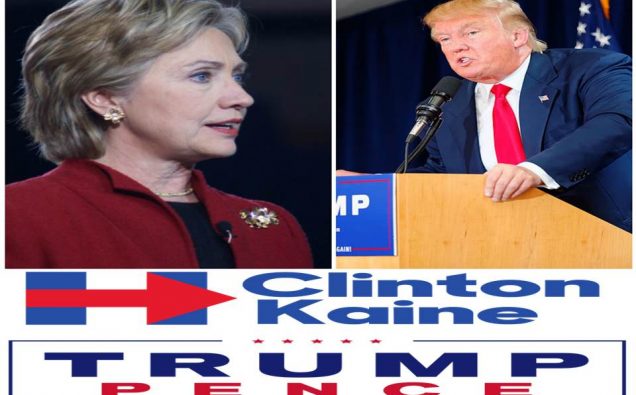
Former secretaries of state Henry Kissinger and George Shultz said Friday that they would not be supporting Republican Donald Trump or Democrat Hillary Clinton in this year’s race for the White House.
“We are not making any endorsement in the current presidential election,” the two noted Republican foreign policy experts said in a statement.
“We are dedicated to fostering a bipartisan foreign policy and we will devote ourselves to this effort now and after the election,” the two former top American diplomats added.
As scores of Republican foreign policy and national security experts have spoken out against Trump, with some endorsing Clinton, speculation had been mounting about Kissinger’s and Shultz’s intentions.
Shultz provided a window into his thinking in August, when asked about a potential Trump presidency during a roundtable with journalists at Stanford University.
“God help us,” he replied.
Shultz, who served in the Nixon and Reagan administrations, praised Clinton for her “deep knowledge of Mexico” and took a swipe at Trump, who he’s been highly critical of throughout the campaign.
“When the next president takes office, if he or she turns inwards, the chaos will only develop more,” Shultz said. “There is no substitute for the United States.”
The lack of an endorsement is still notable — it’s rare in modern politics for top policymakers not to back their party’s nominee. Both Kissinger and Shultz have been critical of Trump in the past and have praised Clinton.
While valued for his scholarship, Kissinger is still reviled by many on the left over his role in Vietnam.
Meanwhile, a latest national tracking poll by Reuters/Ipsos finds 40 per cent of likely voters supporting Trump, while 39 per cent backing Clinton for the week of 26 August through 1 September.
That means Clinton’s lead has declined from an eight-point lead, according to Reuters.
Trump’s favour among Republicans has also increased by six percentage points to 78 per cent over the past two weeks.
He has gone back on his idea of toning down anti-immigration rhetoric, pledging in a speech to deport millions of undocumented immigrants during his “first hour” as president of the United States












